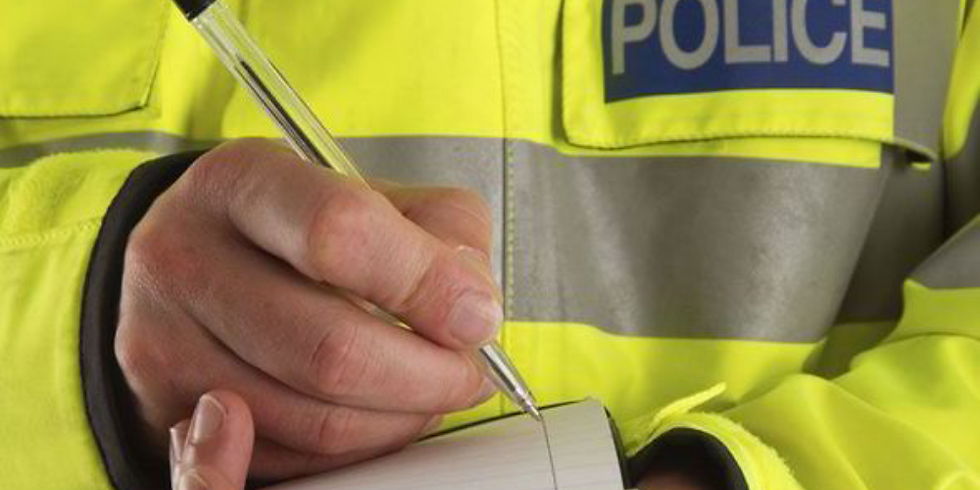Clearing backlogs in the courts: are there enough lawyers, judges and court staff to do it?
- Danny Shaw
- Sep 24, 2021
- 7 min read
Perspectives
Danny Shaw, Head of Strategy and Insight
Friday 24 September 2021

The new Justice Secretary and Lord Chancellor, Dominic Raab, says one of his priorities is to increase capacity in the courts. A large pre-pandemic backlog of criminal cases has ballooned due to coronavirus restrictions, with some trials put back to 2023 and concerns others won’t be heard until 2024. Last year, we conducted ground-breaking research which highlighted the importance for victims, witnesses and defendants of reducing court delays. But as our Head of Strategy and Insight, Danny Shaw, explains the backlog is proving hard to shift:
A text arrived from an experienced lawyer, who’s based in the south of England. “Out of eight Covid-secure trial courtrooms,” he said, “only four had trials running last week.”
A week later, another message arrived. “This week, only five or six doing trials. The others are empty, not doing other work.”
The lawyer blamed the problem on a “lack of judges, recorders and possibly other personnel.” Recorders are lawyers who sit part-time as judges, usually for several days a month.
A quick check on social media suggested the problem wasn’t confined to one area. In fact, an entire Twitter account was set up in August 2019 devoted to reporting the “under-use of Crown Courts in England and Wales”, under the hashtag @CourtsIdle. A theme running through the posts is that there is a growing shortage of barristers, with this recent Tweet typical of many:
”We prosecute, no cover in chambers, rang 47 other chambers no cover. Chambers defending could not cover or find cover either. Therefore two day trial tomorrow no prosecution or defence counsel. How can we go on like this?”

Court cases - particularly criminal trials - are expensive. The buildings themselves, many in a poor state of repair, eat up a huge slice of the budget. In 2020/21, the executive agency responsible, HM Courts and Tribunal Service (HMCTS), spent £307 million on accommodation, maintenance and utilities across England and Wales, almost 20% of its net spending.
But those costs are dwarfed by the amount spent on staffing, almost £1.2 billion last year. That’s because legal proceedings, particularly criminal trials, tend to be labour intensive. For each such hearing there has to be a judge, court clerk and at least one usher - to prepare the courtroom, act as a point of contact for those attending and look after the jury. Administration staff are also employed, playing a vital role helping to co-ordinate the considerable number of moving parts which have to be aligned for hearings to take place - the defendant, dock security officers, prisoner escort staff, prison officers, witnesses, victims, police officers, probation staff, solicitors and barristers for the prosecution and defence and jurors.
During the ‘austerity’ years, when budgets for policing, the Crown Prosecution Service, probation and prisons contracted sharply, the Ministry of Justice also cut spending on the courts. Between 2010/11 and 2019/20, HMCTS saw its funding fall by 21% in real terms, so the agency had to make savings: it sold off court buildings - half of magistrates’ courts, a-third of county courts and eight Crown Courts were closed - and reduced staff numbers.
In the 12 months before the first lockdown began, there were on average 16,264 staff employed by HMCTS, 22% less than in 2010/11. There were 3,174 judges at all levels of the civil and criminal courts - 13% down. There had been a particularly steep reduction in the number of judges who carry out the bulk of the work in Crown Courts, where the most serious criminal cases are heard, with 11 fewer circuit judges and 359 fewer recorders - a 29% decline. Over the same period, the number of magistrates - who are unpaid volunteers - plunged by 55%.
Shrinking pool
Most recorders are drawn from a pool of barristers who conduct criminal court work, for the defence and prosecution. But that pool appears to be shrinking too - causing and adding to the staffing shortfalls in the courts. The Criminal Bar Association (CBA) says in the three years before the pandemic struck the UK, the number of barristers specialising in crime shrank by 11% to 2,273. The organisation says since then the decline has continued and estimates that by 2022 there will be almost half the number of senior barristers, QCs, available for criminal trials as there were in 2015.
The CBA blames the exodus of criminal barristers on cuts to the amount they receive through state-funded work as successive governments reduced the legal aid budget. Prosecuting and defending criminal cases is “not an economically viable career”, it says. One example the CBA cites is the fee for a pre-trial or plea hearing in the Crown Court. Adjusted for inflation, the rate in 1997 was £349 for a QC; in 2020 it was £220. For a junior barrister the fee dropped from £139 to £101.
In a report in July, the House of Commons Justice Committee concluded: “There are serious problems with the current fee schemes for criminal legal aid. The fees and rates do not reflect the work required. The schemes should be reformed to ensure that they offer a fair rate for the work required and are subject to regular review.”
Staffing pressures
From 2010 to 2020, the steady decline in the number of court staff, magistrates, judges and criminal barristers was masked to some extent by a decrease in the number of prosecutions. In Crown Courts, for example, there were 60,446 trials in 2019/20, nearly 40% fewer than a decade earlier.
But events since the coronavirus outbreak have dispelled any notion there aren’t staffing pressures in the court system. In March 2020, as courtrooms closed and jury trials were severely restricted, the backlog of criminal cases began to grow, with trials postponed or rescheduled for months, even years into the future. The initial response from the Ministry of Justice (MoJ) was understandable: to protect public health and limit the spread of infection it had to reconfigure court buildings, so that ‘in person’ hearings could safely take place, and rapidly improve technology to enable more cases to be dealt with virtually.
In general, the reshaping of courts to meet social distancing requirements has been achieved. Sixty new ‘Nightingale’ courts opened in hotels, theatres, football stadiums and other buildings and 3,200 hearing rooms became ‘virtual’, allowing remote hearings to take place. According to the latest MoJ press release over 300 jury trial rooms are being made available.
The department is trying other ways to slice through the backlog of trials. In April it removed a funding cap which had limited the number of days judges could sit. Robert Buckland, Raab’s predecessor, said for at least a year Crown Courts would be authorised to work at “full throttle”. With so many courts now Covid-secure it seemed there was every chance the policy would work.
Backlog barely shifts
But the latest figures continue to paint a bleak picture, with nearly 20,000 more uncompleted Crown Court cases than prior to the pandemic. In February 2020, the last full month before Covid restrictions were put in place, the backlog stood at 39,218. After that, it increased month by month, dipping marginally in July 2021, to 58,188.
So, if courtrooms are available, with judges apparently working flat out, why is the Crown Court backlog barely shifting?
A glance at the official daily court listings may provide a clue. A snapshot of cases due to be heard on Wednesday September 22 indicates that although the majority of courts were busy a significant number remained unoccupied. For example, at Southwark Crown Court in south London, four courts out of 17 were empty, including one of Southwark’s Nightingale courtrooms at Prospero House.
At Leeds Crown Court, five of the 16 courtrooms were unused, among them Court 1 at the temporary facility, Leeds Cloth Hall. At Cardiff and Newport Crown Court, two of the 12 courts were “not sitting”.
Many other courts across England and Wales listed only those courtrooms where cases were scheduled to take place, which suggests that a number of courtrooms that weren’t on the list were also not in use.
Of course, this was one day selected at random; it was not a scientific study, but without any published data-set on court occupancy rates it is the best indicator we have of the usage of criminal courts.
‘Extraordinary state of affairs’
Barristers are clear that shortages of staff are one factor which lie behind these “idle courts”. They’re hoping that an independent review of criminal legal aid, to be published in the coming months, will lead to increased funding, ensuring that cases aren’t delayed for lack of lawyers.
The Lord Chief Justice, Lord Burnett of Maldon - who’s the head of the judiciary in England and Wales - has also voiced concerns about shortages - of judges and, in particular, court staff employed by HMCTS. In June, he said it was a “quite extraordinary state of affairs” that HMCTS pays less than “many other departments and agencies”. The salary difference is estimated by officials to be about £3,000. Speaking at a district judges’ seminar, Lord Burnett said: “It is no surprise that a longstanding problem faced by HMCTS has been that it recruits staff, it trains them and then loses them to another department or agency paying significantly more at the same grade.”
The MoJ says it has recruited 1,600 court staff in the last 18 months and is raising the judicial mandatory retirement age from 70 to 75 which could increase the pool of judges by 400 over ten years. The department insists there is “no evidence” a shortage of barristers is affecting the courts backlog - but it acknowledges there are “challenges”.
If today’s principal challenge is to bring down the backlog in the Crown Courts, so that victims, defendants and witnesses have their cases heard promptly, arguably the greatest challenge in the years ahead is dealing with a potential rise in prosecutions, as the recruitment of 20,000 extra police officers is expected to lead to more arrests and charges. Our research showed that without significant investment court backlogs will reach unmanageable levels by 2024 and we are doing further research to explore how court caseloads could be eased.
Investment in laptops, Wifi and temporary court buildings is of course welcome. But it is also vital that there is sustained funding in people. Without them, our courts won’t be able to function.
Footnotes






